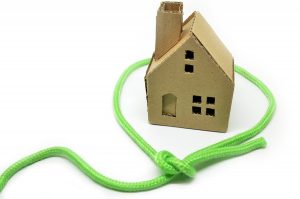 It’s the time of year when many holiday cottage owners will have used, or be using professional tradespeople to undertake repairs and improvements on their properties ready for a great Easter and summer season.
It’s the time of year when many holiday cottage owners will have used, or be using professional tradespeople to undertake repairs and improvements on their properties ready for a great Easter and summer season.
If you fall into this category we wanted to make sure that you’re aware of a rise in ‘property maintenance payment diversion scams’ over recent months. Some businesses and individuals have been stung by these schemes, so we want you to be vigilant and aware.
How do property maintenance payment diversion scams work?
Fraudsters have been using emails to trick holiday homeowners and other businesses into transferring money via payment diversion scams.
- They target those who are expecting to make payments for recent property repairs
- The scammers claim to be the tradesman who recently completed the work.
Not only do they take on the identity of your authentic tradesman, they use a similar email address which can make the email appear to be the real deal. In the email, they ask for funds to be sent via bank transfer. Once that cash has been sent, they’ve got your money and your real tradesman is asking for payment – leaving you out of pocket.
The risks
The most obvious risk when it comes to these emails is a financial one. Bank transfers have no financial compensation, which means that as soon as you send the money you’re unlikely to get a penny back, even if you discover that it was a fraudulent request. Alternative methods such as credit cards and PayPal provide additional protection that bank transfers don’t offer and can therefore provide cottage owners with more of a financial safety net.
Ensure you don’t click on any links
Most email services have strong junk and spam filters nowadays. However it doesn’t mean that a scam email won’t still find its way into your inbox. The majority of the emails being sent are purely text based, but some may contain a link. If you doubt the authenticity of an email, it’s important that you don’t click on any links. They can often be used to spread a virus into your computer or devise.
What to do
If you’ve recently had work completed on your holiday let, then keep an eye on what arrives in your inbox. First and foremost, check the email address against the one you have previously used in correspondence with the genuine contractor. If the email address is different, it’s probably not the real deal.
You should also check the spelling and grammar. Incorrect spellings and poor grammar are a red flag and suggest that the email could be a payment diversion scam. Professionals take the time to make sure emails are correct, scammers do not.
Even if the spelling is perfect and you don’t think it was sent by a fraudster, always call your tradesman before making any payments. Confirm that they sent you the email, and the payment details.
If you believe you have been a victim of fraud, you can report it online. Use this link http://www.actionfraud.police.uk/report_fraud or call Action Fraud on 0300 1232040.
Boshers offer specialist holiday home insurance to owners across the UK. Require a quote for your holiday apartment, cottage or complex? Please give us a call on 01237 429444.

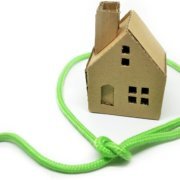
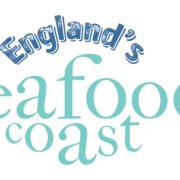
 If we said “seafood”, where would you think of? A new initiative (England’s Seafood Coast) has been launched by Mitch Tonks, Visit Devon, and the Torbay Culture Board. It aims to position ‘Torbay’ and ‘South Devon’ at the heart of Britain’s seafood culture.
If we said “seafood”, where would you think of? A new initiative (England’s Seafood Coast) has been launched by Mitch Tonks, Visit Devon, and the Torbay Culture Board. It aims to position ‘Torbay’ and ‘South Devon’ at the heart of Britain’s seafood culture.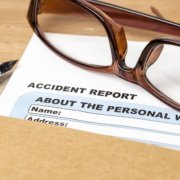
 Accidents happen, and whilst
Accidents happen, and whilst 
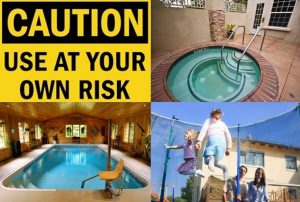 We’ve all seen them in everyday life; ‘Park here at your own risk’, ‘Playing in this area is at your own risk’. Disclaimer notices have become an increasingly common sight for most of us. Therefore it may surprise you to find that they don’t absolve the owner from blame should something go wrong. This is equally true for your
We’ve all seen them in everyday life; ‘Park here at your own risk’, ‘Playing in this area is at your own risk’. Disclaimer notices have become an increasingly common sight for most of us. Therefore it may surprise you to find that they don’t absolve the owner from blame should something go wrong. This is equally true for your 
 When adding additional facilites to your holiday home consideration should be given to guest safety and holiday homeowner liability risks. Tourism is an increasingly competitive marketplace; what makes someone choose your
When adding additional facilites to your holiday home consideration should be given to guest safety and holiday homeowner liability risks. Tourism is an increasingly competitive marketplace; what makes someone choose your 
 As far as stats go 2015 was a great year for UK tourism as a whole. Many accommodation providers across the UK seeing increases in bookings and stays. The good news is that as 2016 came to a close it’s looking like it has lived up to the hype of the previous year with stats now becoming available for August.
As far as stats go 2015 was a great year for UK tourism as a whole. Many accommodation providers across the UK seeing increases in bookings and stays. The good news is that as 2016 came to a close it’s looking like it has lived up to the hype of the previous year with stats now becoming available for August.


 Holiday homeowners will have for a long time realised the importance of guest reviews; Tripadvisor has been at the centre of where many seek guest reviews for hotel and self-catering accommodation for more than fifteen years. You’ll not be surprised to hear that 90% of guests indicate they’re influenced by what they read online.
Holiday homeowners will have for a long time realised the importance of guest reviews; Tripadvisor has been at the centre of where many seek guest reviews for hotel and self-catering accommodation for more than fifteen years. You’ll not be surprised to hear that 90% of guests indicate they’re influenced by what they read online.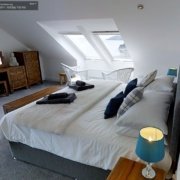
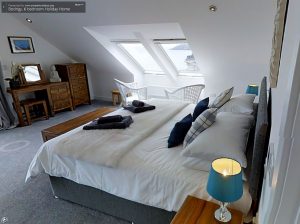 For a long time, holiday homeowners have faced a similar problem; how do you do the interior of your property justice with photography? How do you encapsulate the views, the local surrounds and everything outside your cottage?
For a long time, holiday homeowners have faced a similar problem; how do you do the interior of your property justice with photography? How do you encapsulate the views, the local surrounds and everything outside your cottage? As with everything, you get what you pay for so if you’re looking to really promote the quality of your holiday home using a professional is likely to be the preferred route, albeit at a cost. You’ll have to weigh up the return that you are likely to receive in increased bookings in return for your investment in a 360 degree video. If you use a holiday letting agent to promote your holiday home speak to them about your options, they may well have a solution.
As with everything, you get what you pay for so if you’re looking to really promote the quality of your holiday home using a professional is likely to be the preferred route, albeit at a cost. You’ll have to weigh up the return that you are likely to receive in increased bookings in return for your investment in a 360 degree video. If you use a holiday letting agent to promote your holiday home speak to them about your options, they may well have a solution.
 During the busy summer months, it’s common to have a small time frame for your
During the busy summer months, it’s common to have a small time frame for your